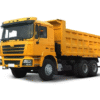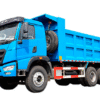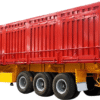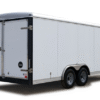When I first started researching box trailer prices, I was surprised by the wide range of options—from basic used models under $2,000 to heavy-duty custom builds over $20,000. The final cost depends on factors like size, materials, and features, but understanding these variables helped me narrow down the best fit for my budget and hauling needs.
After comparing dozens of trailers, I learned that new mid-range box trailers (typically 6×12 feet) average between $5,000 and $10,000, depending on whether you choose steel or aluminum framing. Dealers often throw in extras like ramps or tie-downs, but hidden fees (like delivery charges) can sneak up—something I wish I’d known before my first purchase.
If you’re like me and need a trailer for occasional DIY projects, a used or lightweight model might save you thousands. But for daily commercial use, investing in durable brakes, reinforced flooring, and weatherproofing could be worth the higher upfront cost. Here’s how I weighed the pros and cons to avoid overspending—or worse, buying a trailer that couldn’t handle the job.
What is the Average Cost of a Box Trailer?
From my experience, what you’ll pay for a box trailer, also called an enclosed trailer, depends on a few key things. I have found size, materials, the type of axle, and any extra features are the main price drivers.
Factors Influencing Box Trailer Prices
- Size & Material: I see standard enclosed trailers starting at around $5,400. This price often gets you a side door, a ramp door, a tread plate front, and locking bars. If you choose a larger trailer or one made from materials like aluminum, I recommend you expect to pay more.
- Axle Configuration:
- Single axle trailers are more affordable. They just have a lower weight capacity.
- Tandem axle versions give you better stability. They can handle heavier loads, which makes them more expensive.
Real-World Price Examples
- 6×12 Single Axle (SA): Starting at $3,995
- 6×12 Tandem Axle (TA): Starting at $4,575
- 7×12 Tandem Axle (TA): I see these priced around $5,650
- 8.5×14 Tandem Axle (TA): Priced near $6,850
- 8.5×30 Tandem Axle with 5200 Axles: Can reach $9,350
Impact of Custom Features
I suggest thinking about customization carefully. Adding things like custom flooring, special lighting, or extra storage will increase your total cost. For larger models with heavy-duty axles and more custom work, I’ve seen costs climb to the top of the price range.In my opinion, prices for box trailers can change quite a bit. The demand in your local market and the features you pick will both affect the final cost.
Box Trailer Price List by Size and Axle Type
From my experience, a box trailer’s price depends on two main things. You need to consider its size and its axle type—either single axle (SA) or tandem axle (TA). I’ve put together a 2024–2025 price list that I organized by size and axle. I hope this helps you create a budget and find the right trailer.
| Category | Model/Size & Type | Price | Capacity / Notes |
|---|---|---|---|
| Single Axle vs. Tandem Axle Box Trailer Pricing | 6×12 Single Axle (SA) | $3,995 | 1,770 lbs capacity. Commonly used for motorcycles or concession setups. |
| 6×12 Tandem Axle (TA) | $4,575 | 5,180 lbs capacity. Much higher payload capability. | |
| Prices by Common Sizes (Tandem Axle) | 6×14 Tandem Axle | $4,775 | |
| 7×12 Tandem Axle | $5,650 | ||
| 7×14 Tandem Axle | $5,700 | 4,850 lbs capacity. Suited for construction or hauling side-by-side vehicles. | |
| 7×16 Tandem Axle | $5,800 | ||
| 7×18 Tandem Axle | $6,450 | ||
| 7×20 Tandem Axle | $6,750 | ||
| Large/Wide Box Trailers (Almost all Tandem Axle) | 8.5×14 | $6,850 | |
| 8.5×16 | $6,950–$7,050 | ||
| 8.5×18 | $7,100–$7,200 | ||
| 8.5×20 (3,500 lb axles) | $7,200–$7,800 | ||
| 8.5×20 with 5,200 lb axles | $8,100 or more | ||
| 8.5×22 | $7,500 | ||
| 8.5×24 with 5,200 lb axles | $8,350 | Can carry up to 6,400 lbs. Recommended for vehicles or race cars. | |
| 8.5×26 with 5,200 lb axles | $8,800 | ||
| 8.5×28 with 5,200 lb axles | $8,975 | ||
| 8.5×30 with 5,200 lb axles | $9,350 | ||
| 8.5×32 with 5,200 lb axles | $9,600 | ||
| Brand-Specific Price Ranges | Homesteader Trailers | $3,000–$23,000 | Sizes 11.8′–51′, axle ratings ~3,500 lbs |
| Delta Trailers | $8,800–$11,780 | Sizes 8′–36′, axles up to 5,200 lbs | |
| EZ Hauler Trailers | Up to $28,680 | Sizes 5′–8.5′, both single and tandem axles | |
| Quick Reference Price Points | 6×12 Single Axle | $3,995 | Most affordable for compact jobs |
| 7×16 Tandem Axle | ~$5,800 | Popular choice for many needs | |
| 8.5×20 Tandem Axle, 3,500 lb axles | ~$7,200 | Full-size medium-duty | |
| 8.5×24 Tandem Axle, 5,200 lb axles | $8,350 | Heavy duty, for vehicles/racing | |
| Key Takeaways |
|
||
I suggest you use these real-world prices to compare what’s available. This should help you plan your purchase with current information.
7 Key Factors That Determine Box Trailer Prices
If you’re shopping for a box trailer, I think there are seven main things that affect the price. Let me share what I’ve learned so you can make a good choice.
1. Brand and Manufacturer
From my experience, big names like Haulmark, Wells Cargo, and Load Trail usually cost more. They have a reputation for being tough and lasting a long time. You might save money with a brand you don’t know, but I’d be careful. You could be giving up reliability or long-term performance.
2. Trailer Size
A trailer’s size, which includes its length and load capacity, has a big impact on cost. Here are the typical price ranges I see by size:
Small box trailers (10–20 feet): $5,000 to $15,000
Medium box trailers (21–30 feet): $10,000 to $25,000
Large box trailers (31–40 feet): $15,000 to $35,000
Extra-large box trailers (41–50 feet): Up to $50,000
To give you a better idea, a typical utility trailer costs about $2,400. The average enclosed box trailer is closer to $5,400.
3. Material
I believe the material is a big decision for both cost and how the trailer performs. Aluminum trailers are lightweight. This helps with gas mileage and they don’t rust easily, but they do cost more. Steel trailers are less expensive and can take more of a beating. The downside is they are heavy and can rust, which means more upkeep and higher fuel bills for you.
4. Axle Configuration
I suggest you pay close attention to the axle setup. It affects price and how the trailer works. A single-axle trailer is the cheapest choice, but I recommend it only for lighter loads. If you need to haul heavy items, a tandem or triple-axle trailer is better. They provide much more stability. Adding options like steerable or lift axles will increase the price.
5. Customization and Features
If you add extra features, the price will go up. I’m talking about things like treated floors, better lights, extra doors, ramps, or high-tech security. Each feature you tack on raises the cost. If you want custom work aor top-tier upgrades, I find those prices can get very high.
6. Condition (For Used Trailers)
When you’re looking at used trailers, I believe the condition is the most important factor. Trailers lose value as they get older and see more use. I strongly suggest you look for hidden problems, cosmetic damage, and the maintenance history. You have to inspect it closely to avoid paying more than it’s worth.
7. Market Demand and Location
Where you live can really change trailer prices. In areas where trailers are popular, prices might be higher or stock could be low. I also find that some locations require you to add transportation and delivery fees to your budget. Based on my experience, you should always check local listings and think about these regional differences before you buy.
The Cost of Common Customizations and Upgrades for Box Trailers
Upgrading a box trailer makes it fit your needs, but these changes add to the price. I’ve customized many trailers, so let me share what I’ve learned. Here’s a look at common upgrades and how they affect the final price.
My View on Customization Costs
Insulation: I recommend this for controlling the temperature inside your trailer. It will increase the cost, and even more so if you need comfort all year.Air Suspension: This gives you a smoother ride on bumpy roads. Be aware, this single upgrade can add thousands to your budget.Antilock Braking System (ABS): For better safety, an ABS installation costs between $500 and $1,000. The price varies by brand and specific system.Adjustable Arms or Ramps: I find these useful for loading and unloading. They usually cost $200 to $500 each.Interior Shelving and Storage: If you need custom shelves or extra storage, your total cost will increase by $500 to $1,500.Electrical and Lighting Upgrades: If you want custom lights, outlets, or a full power system, expect to pay $1,000 to $3,000.Customization Premium: How Much Extra Should You Budget?
From what I’ve seen, custom features can increase a trailer’s price by 10% to 50%. Sometimes it’s even more. The final bill depends on how many high-tech or personalized upgrades you choose.
Real-World Price Examples with Upgrades
- A basic 6×12 single axle enclosed trailer starts around $3,995. Adding custom options will increase that price.
- A 7×14 enclosed trailer might start at $5,700. The price goes up as you add more features.
- For a very specific build, like a luxurious lounge trailer, the cost can jump to $47,999 or more.
My Take
I believe upgrades can completely change a standard box trailer to match what you need. My advice is to think about which features are most important to you. Not every add-on is a good value for everyone. I suggest you focus on what you’ll use long-term when you set your budget.
Don’t Forget These Hidden Costs of Box Trailers
A box trailer’s cost is more than its sticker price. From my experience, several hidden costs can surprise buyers. These extra expenses have a big impact on your total budget. I suggest you keep these points in mind to figure out the real cost.
Registration, Title, and Inspection Fees
State registration and title fees for a box trailer change based on location. The price often depends on your trailer’s value. You may also need to pay for inspections or show proof of insurance to complete the paperwork. I’ve seen these legal costs climb to several hundred dollars. This happens more often when inspections or special state rules are part of the process.
Sales Tax Surprises
I find that advertised prices often don’t include sales tax. State and local tax rates can add 5% to 10% to the purchase price. Some places have extra surcharges, too. I recommend you double-check the final bill after the tax is added. This is a spot where many buyers miscalculate their total expense.
Ongoing Insurance Costs
You will likely need insurance for your trailer. It’s necessary if you use it for business or haul valuable items. The cost depends on the trailer’s size, type, and how you use it. I think of these premiums as a recurring expense that needs a spot in your long-term budget.
Maintenance and Repair Expenses
From my experience, every trailer requires regular maintenance. These costs can add up. You will need to budget for brake checks, lubrication, and repairs from normal wear. New tires alone can cost $200–$400 each. I’ve noticed that older or more customized trailers often have higher maintenance bills.
Storage Fees
If you can’t park your trailer at home, you’ll need to pay for storage. Basic outdoor storage starts at about $30 per month. For a secure, indoor spot, the price can exceed $500 per month. This depends on your city and the trailer’s size. I’ve found that prices are higher in urban and high-demand markets.
Financing and Interest Costs
If you finance your trailer instead of paying cash, you will have interest and loan fees. Rates often fall between 5% and 12% APR. Your credit score and the lender will determine your rate. Based on my observations, these financing costs can add thousands to the final price over the loan’s term.
Cost of Customization and Add-Ons
When you add upgrades like insulation, AC, or special ramps, your initial price goes up. Your maintenance costs can increase, too. I’ve seen these practical modifications add $1,000 or more to the total. More complex customizations will cost you more.
Accessories and Equipment
In my experience, the base price doesn’t cover necessary accessories. Items such as extra doors, ladders, tables, and safety gear like smoke detectors add up. Even a basic setup with these things can cost over $887. If you add features like a heater or air conditioner, the price will climb even more.
Lost Revenue or Downtime for Business Use
If you use your trailer for work, any breakdown or storage problem can mean lost income. A missed delivery or time spent on repairs has its own cost. I believe this loss can sometimes be greater than the repair bill itself.
Hidden Cost Checklist:
– Registration/title fees: up to several hundred dollars
– Sales tax: 5–10%+ of purchase price
– Insurance: ongoing premiums
– Maintenance: a set of tires can cost $200–$400 each
– Storage: $30–$500+ a month
– Customization: $1,000+ is common
– Financing: 5–12% APR
– Accessories: $887+ for basic gear
I recommend you add these hidden costs to your budget. This will help you avoid surprises and make a better, more informed choice when buying a box trailer.
Is Buying a Used Box Trailer Worth It? (A Cost Comparison)
Are you trying to decide between a new or used box trailer? I think the choice comes down to paying less upfront versus having long-term value and reliability. Let’s look at a real cost breakdown and the factors I believe are most important for your decision.
Price Comparison: New vs. Used Box Trailers
New enclosed cargo trailers (6′ x 10′) have a price range of $4,450 to $4,975.From my experience, used enclosed cargo trailers are listed at 20–40% less than new ones. The final price depends on the trailer’s age and shape.For example, a new 2023 Cargo Express EX DLX 6′ x 10′ costs $4,450.I have seen a similar 2022 model in good condition sell for a much lower price, sometimes between $3,000–$4,200. Keep in mind that availability and price will vary based on current listings.Basic single-axle utility trailers: A new one costs $1,000–$3,500. I’d expect to pay $700–$2,500 for a used one.Tandem axle or heavy-duty utility trailers: New ones are $3,500–$7,000. Used models can be found for $2,000–$5,500.Enclosed car trailers (8.5′ x 16–20′): These cost $9,999–$10,499+ new. You can often find used ones for $5,500–$8,500.
Benefits and Trade-Offs of Buying Used
Pros I’ve Found:
The best part is the lower initial price. For the same amount of money, you can get a larger or better-featured used trailer instead of a basic new one.
Used trailers have already lost most of their initial value. This means you lose less money over the time you own it.
Cons to Consider:
No warranty: Most used box trailers are sold “as is.” I recommend you prepare for potential repair bills.
You don’t know its full condition. Issues like rust, worn-out tires, leaks, or bad wiring can lead to surprise costs.
Immediate repair costs: Some used trailers need work right away. These costs can reduce the savings you made on the purchase.
Real-World Value Factors
- In my opinion, condition is the most important thing. I always check the frame for rust, inspect the axle, look for roof leaks, and ask about past repairs.
- A new trailer includes support from the manufacturer. This warranty gives you peace of mind, which is a big deal if you don’t like risk or if you use the trailer for your business.
- There are many used trailers on the market. You can find lots of different sizes and prices from both dealers and private sellers.
At-a-Glance: New vs. Used Box Trailer Pricing
| Trailer Type | New Price Range | Used Price Range (est.) |
|---|---|---|
| Basic Utility (single) | $1,000–$3,500 | $700–$2,500 |
| Utility (tandem/large) | $3,500–$7,000 | $2,000–$5,500 |
| Enclosed Cargo (6′x10′) | $4,450–$4,975 | $3,000–$4,200 |
| Car Hauler (enclosed) | $9,999–$10,499+ | $5,500–$8,500 |
My Take: Is Buying a Used Box Trailer Worth It?
If your main goal is to stick to a tight budget, I think buying used is a great value. You just need to be comfortable checking it over or handling small repairs. You avoid the big drop in value and your money goes further.But if you need something completely reliable with a warranty, a new box trailer is the smarter choice, even though it costs more. This is very important if you use the trailer for work and cannot afford any downtime.
My final advice: You have to weigh the short-term savings against your long-term peace of mind. I suggest you look beyond the sticker price. Think about the possible maintenance and repair costs before choosing between a new and used box trailer.
summary
When I look back at my own box trailer purchase, I see what was most important. I had to find a balance between what I needed and what my budget would allow. You might choose a new or used trailer, or a small or large one. The right trailer is available for you. My advice is to take your time and do the research. I found paying for a quality trailer at the beginning saves money on future repairs. With this knowledge, I think you’re ready to make a smart purchase. You can get a trailer that will be useful for a very long time.
FAQS
1. What’s the average price range for a new box trailer?
New box trailers typically range from $3,000 to $20,000+, depending on size, material (steel vs. aluminum), and features like ramps, ventilation, or reinforced flooring. A standard 6×12-foot trailer usually falls between $5,000 and $10,000.
2. Are used box trailers a good way to save money?
Yes! Used trailers can cost 30–50% less than new ones, with prices starting around $1,500–$5,000. However, always inspect the frame, tires, and flooring for wear to avoid costly repairs later.
3. Does aluminum cost more than steel?
Usually, yes—aluminum trailers are lighter and rust-resistant, making them 10–20% more expensive than steel. But they’re ideal for fuel efficiency and long-term durability in harsh weather.
4. What hidden fees should I watch for?
Beyond the base price, budget for delivery charges ($200–$800), registration/taxes, and optional add-ons like spare tires or upgraded hitches. Some dealers also charge assembly fees if you don’t DIY.
5. Should I buy from a dealer or a private seller?
Dealers offer warranties and financing but often charge more. Private sellers may have better deals, but you’ll need to verify ownership and condition yourself. For first-time buyers, a reputable dealer is often the safer choice.







